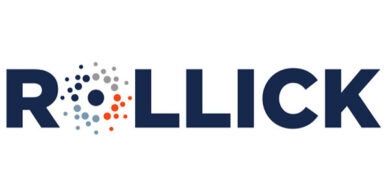SEO Trends
By Colleen Brousil
The algorithms used by top search engines to determine rankings are ever-evolving. Search Engine Optimization (SEO) experts are constantly analyzing the formulas used by leading search engines like Google in the quest to cipher the keys to search engine success.
The art and science of SEO can be a bit overwhelming, but my goal is to simmer down today’s SEO trends to offer you actionable advice to take advantage of the latest changes in search to improve your website’s SEO.
The SEO experts at Moz recently released their Annual Local Ranking Factors Study, and three key trends emerged. Let’s take a look at those trends and what they mean to you.
Trend #1: Proximity to searcher has increased as a factor in determining search engine rankings.
What it means to you: You’re now being rewarded for being close to a searcher’s physical location. To take advantage of the local angle, be sure that not only your site’s “About” and “Contact Us” pages include your address and phone number, but that this information is readily available to searchers on every page of your site.
You’ll also be rewarded in search when you confirm your business information is listed consistently across third-party sites, including Google My Business, Angie’s List, Yelp, and other social networks and online review sites.
User reviews also help build your dealership’s visibility in local search results, as does your engagement in responding to them — whether they are positive or negative.
Finally, stay social! Use hashtags, links, videos and photos to drive engagement. Avoid screaming ads. It’s called “social” media for a reason. Share what’s going on inside your business and behind the scenes. People want to do business with people they know and trust. The more followers and engagement you receive, the higher your pages will appear in search.
Trend #2: Behavioral signals such as click-through rates are more of a factor in determining search engine ranking than in the past.
What it means to you: The more customers interact with your website, the better. It is crucial that you create an online user experience that funnels customers through to key calls-to-action on your website. On every product or service page, there should be a clear next step: “Add to Shopping Cart,” “Get Directions” or “Schedule Service,” for example. Not only will you be rewarded with leads when your site visitors click-through your quote or service request forms, but you’ll be rewarded with higher search rankings as well.
One key way to boost site visitor interaction is to give them the rich product content they are searching for. Be sure you’re listing all of your inventory online. While I’m not saying that a quart of oil needs to be posted to your site, I am saying it sure won’t hurt! Accurately listing each and every major piece of inventory on your showroom floor is essential. It will not only help convert shoppers who are familiar with your dealership, but their online activity will actually help increase your search engine rankings and drive more potential customers to your virtual showroom directly from search engines.
Trend #3: Domain Authority has increased as a signal to search engines as they determine your site’s search engine ranking.
What it means to you: Let’s start off with a definition. Domain Authority is a measure of the power of a domain name and is based on three key factors: age, size and popularity. Essentially, Domain Authority is the measure of how competitive your website is on Google. Want to see how you stack up against the competition online? Go to http://bit.ly/1ocvRNn and enter your website’s URL, as well as that of your competition to compare your Domain Authority.
How’d you do? Domain Authority is measured on a scale of 1 to 100, and major players like Facebook achieve a score of 100, but you’ll likely score much lower — you can expect a score in the 30s or 40s. Don’t be discouraged. What matters here is your relative authority to your direct competition. If a consumer searches for lawn mowers in your area on Google, your goal should be to have the highest Domain Authority, so that search results return your dealership’s pages over those of your competition.
Let’s take a look at the key factors that contribute to your Domain Authority, and see what opportunities your dealership has to improve.
Domain Age is a factor that you can’t change; however, if the dealership down the street has had its website longer than you, don’t fret. Domain Age doesn’t automatically translate into Domain Authority. If a domain isn’t regularly updated, maintains outdated SEO techniques and is otherwise neglected, it will lose Domain Authority. What can you do? Keep on your game! I may start to sound like a broken record, but maintaining your site with regularly updated content is key to your success. Content updates go beyond your inventory. Regularly updating specials, events information and blog content will also contribute to your Domain Authority over time.
All of that regularly updated content will also positively impact the other contributing factors to Domain Authority: popularity and size. Keep track of your site’s popularity over time using Google Analytics. If key metrics like unique visitors and page views are not showing growth, it may be time to examine your site’s content and optimization plan.
Your site’s size measurement is based on the number of pages your site contains, but adding more pages just for the sake of adding more pages isn’t going to add value. The content on all of your site’s pages needs to be of value to potential site visitors.
Your site also needs to incorporate proper page optimization techniques, including the use of page titles, meta tags, header tags, keywords, alt tags and more. Did I lose you in the jargon? For a full glossary of SEO terminology, go to http://bit.ly/1wMI62l.
This is where things can get a bit complex. To ensure your site’s technical SEO is optimized, I’d recommend turning to the experts at your website provider to gain a clear understanding of how to incorporate these elements into your site’s pages. Most industry-specific website platforms come with built-in SEO optimization tools. Talk to your provider to ensure you’ve got the tools you need to help you maximize your site’s search engine ranking.
While a little expert guidance is key to ensuring you get the most out of the technical aspects of SEO, you can master the basic principles on your own by executing some of the strategies I’ve covered in this article. After you’ve done your SEO homework, you might be excited to instantly Google your business to see the fruits of your labor — not so fast. Building authority with search engines is an ongoing process. Stick with it, and you’ll win in search in the long run!
Colleen Brousil is the director of marketing at ARI Network Services. Prior to joining ARI in November 2013, Brousil served as the editor of Motorcycle and Powersports News. Brousil is dedicated to the mission of helping dealers improve their operations through the implementation of ever-evolving best practices paired with ARI’s suite of an award-winning data-driven software tools and marketing services that help dealers “Sell More Stuff!” — online and in-store. ARI removes the complexity of selling and servicing new and used inventory, parts, garments and accessories for customers in the outdoor power equipment, powersports, marine, RV, automotive tire and wheel, and white goods industries. More than 22,000 equipment dealers, 195 distributors and 140 manufacturers worldwide leverage ARI’s website (www.arinet.com) and eCatalog platforms to “Sell More Stuff!”



